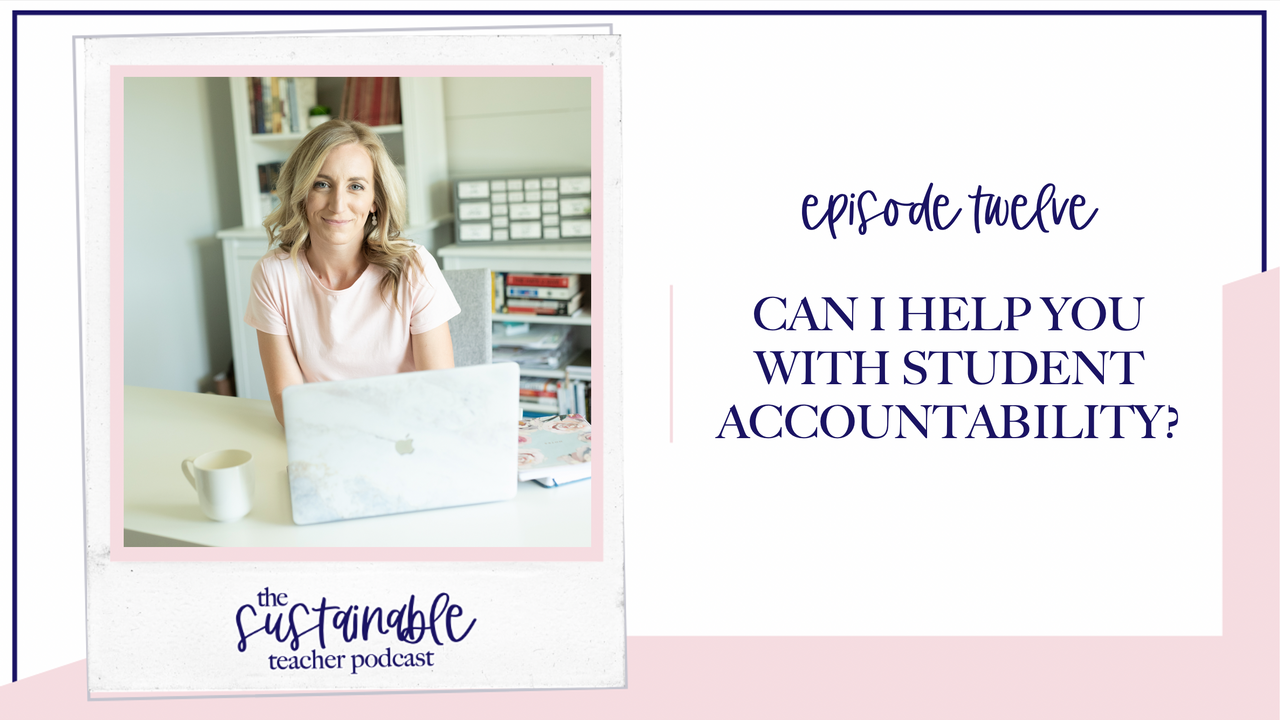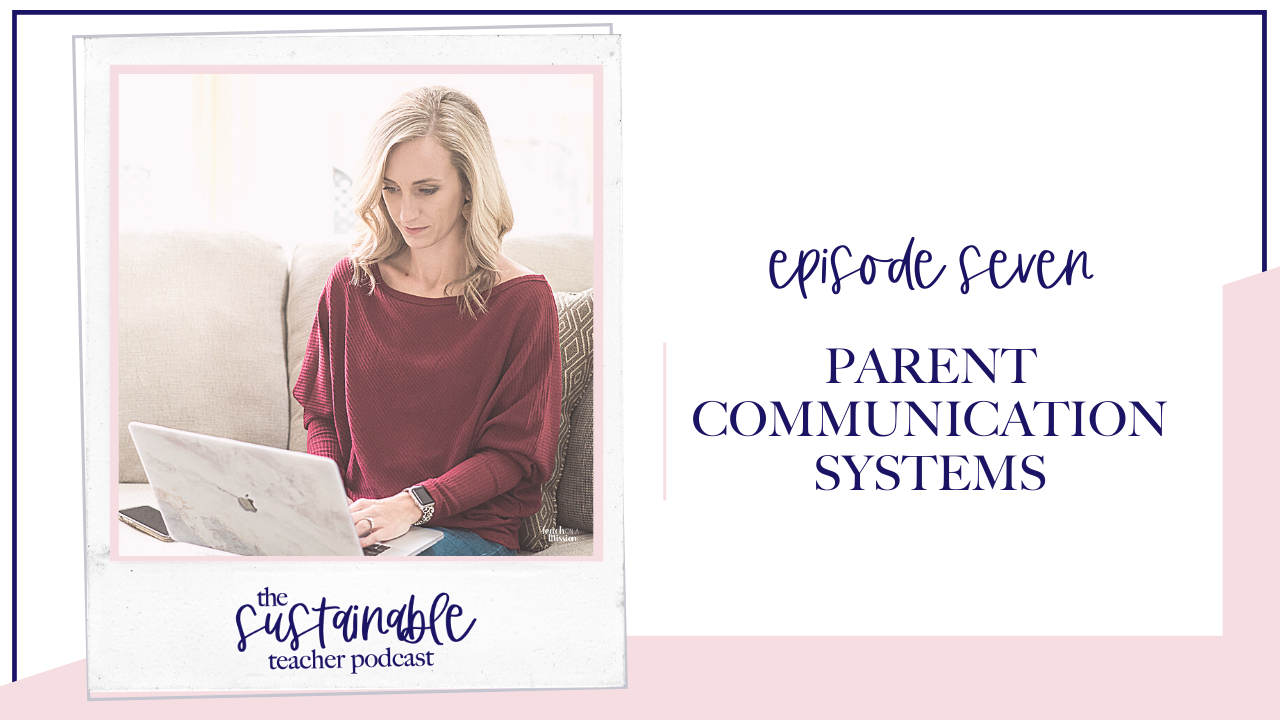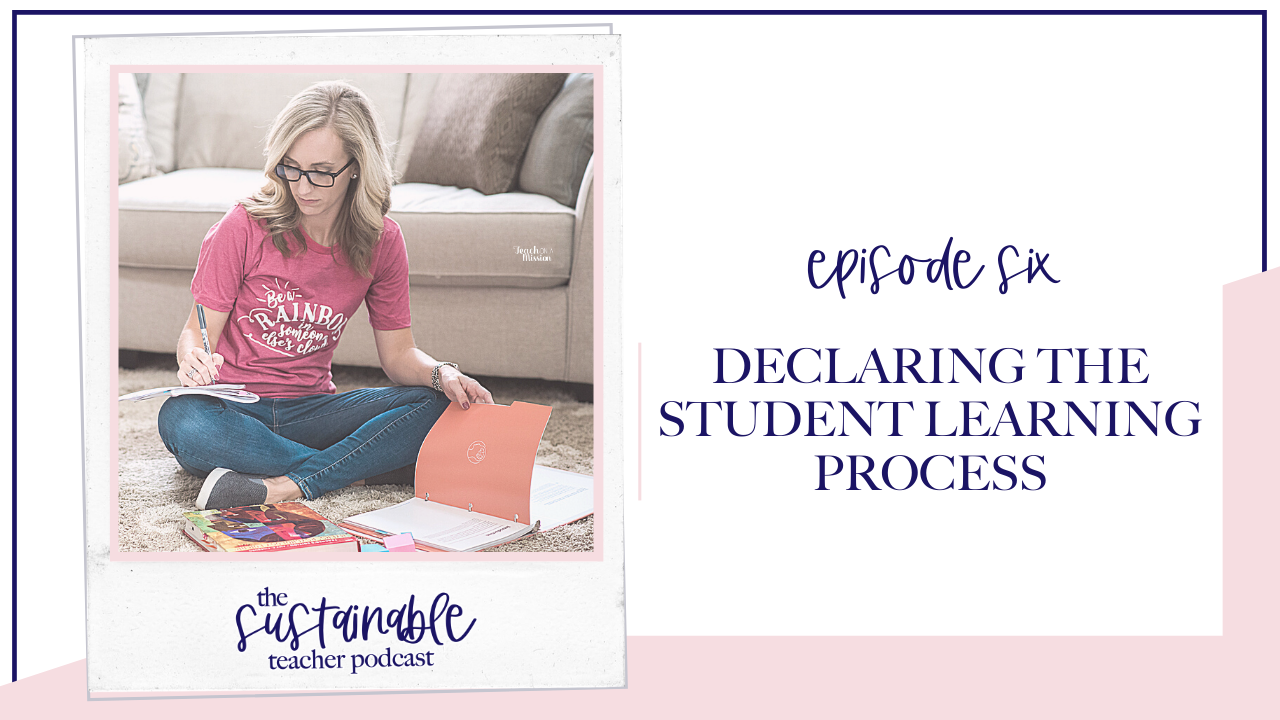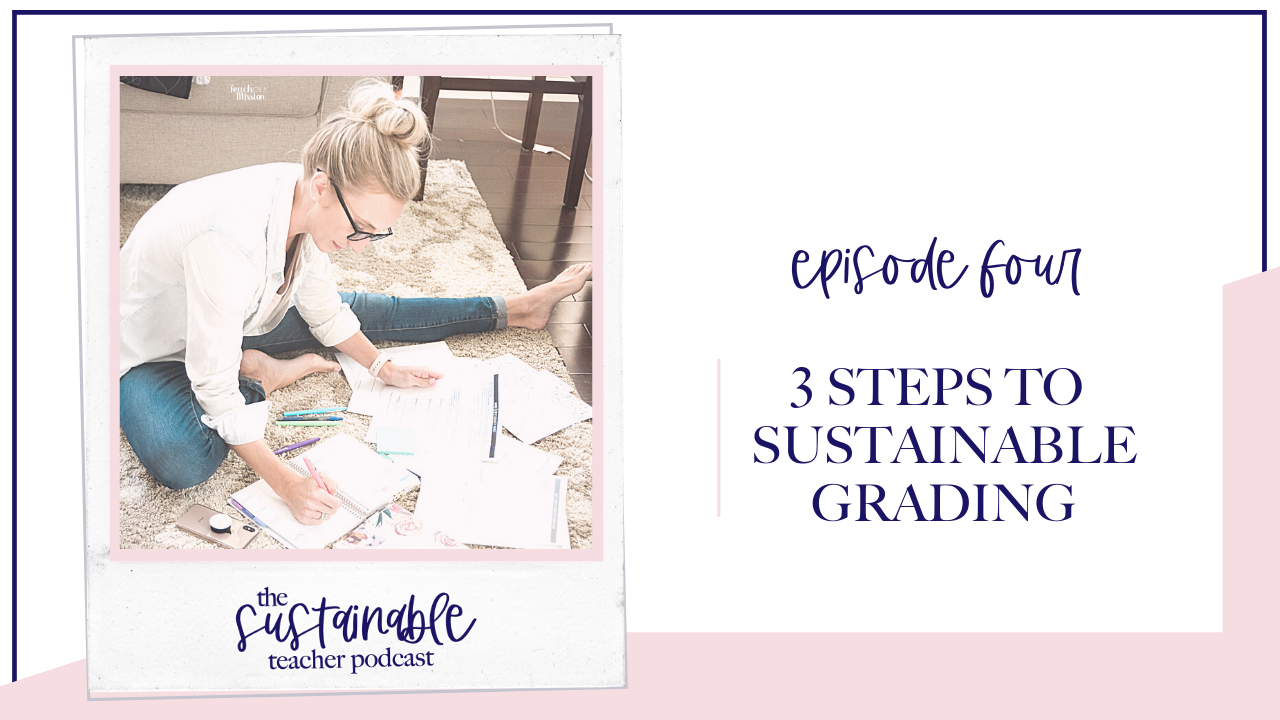3 Summer Must-Dos for a Sustainable Teacher & Parent

Hello there and welcome to the Sustainable Teacher Podcast, where we chat once a week about all things keeping our lives manageable so that we can do the things we love longer, particularly teaching. In this episode, I’m going to take a little break from the normal teacher-specific talk, and focus more on another important aspect of our lives, and that is our homes. More specifically, I’ll be getting a little personal and sharing some specific things that I’ve been working on lately in my home and personal life to reach for a bit more sustainability. And I hope you find them valuable.
After listening to this episode you’ll know three ways that I’m making our homelife a bit more manageable, so that you are inspired to reflect on and possibly implement any of the strategies as you strive for more sustainability in all aspects of your life.
Let’s get to it.

Summer Bucket list
As we are quickly approaching summer, I don’t know about you guys, but I’m getting a little overwhelmed...
5 Things Everyone Should Know About the Flipped Classroom

There are only a few reasons why you may be reading this blog (or listening to this week's episode on the podcast) right now. You’ve heard of the flipped classroom and want to know a bit more. Or you feel like you’ve been flipping your classroom since the pandemic started and now you’re wondering how that translates as we enter our new normal. Or you know the new normal we’re heading toward can’t be the normal that was, and yet you’re not sure what it will look like, or more importantly what you want it to look like. All you know is, there has to be a better way to go about being accessible, flexible, and effective without you being the martyr that sacrifices your personal life and well being to do so.
I’m going out on a limb here to say that although there is no silver bullet in education to solve all our daily teaching life problems, flipping the classroom is absolutely the answer for most teachers to be accessible, flexible, and even more effective without sacrificing their s...
The "New Normal" in Education

If I sit still and quietly for a moment…. More than ever, at least in my own life, I can almost physically feel the currents of change in education. We could spend time labeling that change good or bad, but it’s happening with our without us due to circumstances and powers we can not control.
Have you heard the phrase “A rising tide lifts all boats?” It’s an aphorism tied to economic policy, but one that I’ve been thinking about a lot lately in the educational realm.
What if we looked at the shifts that are happening in education and our approach to the new normal as a chance to be the tide? We as individuals, seize this moment to say I’m going to shift and I am going to take advantage of this opportunity to show folks the possibilities here. What if?
I’ve got three takeaways for you today, and after reading this blog, teachers will feel empowered to face the inevitable changes in education, knowing that the flipped classroom will allow you to be flexible and proactive as we a...
I Bet You'd Never Guess These Numbers

It’s 2011, and I’ve just finished my first year of teaching when over the summer I hop on the little portal that will show me how well I did. I taught an AP® course, among other courses, which for those of you who don’t know stands for Advanced Placement® and is a nation-wide curriculum and testing program run by CollegeBoard. At the end of every year, students take a test on the entire course’s material and can earn college credit - it’s a big deal for many students and certainly for the adults who teach them.
The test is scored on a scale of 1 to 5, with all public universities accepting a 3 for the equivalent of one college course in the field they tested. Then at private universities students can earn even more credit with higher scores.
Welp, I hopped on that portal and saw that my average student score was a 3.1. Not bad for a 22 year old teaching AP® Psychology for the first time and only ever having taken a psych course twice in her life - the first of which was AP® Psy...
Can I Help You With Student Accountability?

The million dollar question in education right now is how in the world we get our students to do the work? It seems we have alarming rates of failure and, week after week, a substantial amount of students just not doing the work. In the flipped classroom, this has always been one of the top questions I’ve fielded from teachers when they come to me for help to get the flipped classroom process started, and that is “What happens when a student doesn’t do the work, meaning take the notes, at home? Then what?”
This week we will dive into what it is to actually hold students accountable and how you can use it to not only be a more effective educator, but one who is actually reducing your own to-do list as student accountability increases. After listening to this episode, you will have clarity around what it means to hold your students accountable in ways that empower your students to own their learning, and ultimately reduce your to-do list as you watch your students totally rock it...
Parent Communication Systems

“Hours!” she said. “I spent HOURS on my Sunday afternoon grading just late work alone, and then you want to know what I had to do the rest of the week?” I could almost guess what it was, “call parents” she said, exacerbated. My teacher friend went on to explain how as it was the end of the quarter and grades were due soon, it was that time of the year that comes around four times per year to communicate to parents whose child is near or actually failing a course.
I squinted and turned my head to the side to lessen the blow of her answer as I asked, “how long did it take to contact parents?”
Three days after school, she said, until well past 5pm. And I never got to them all.
We’ve all been there. We’ve all been in a place where something in our teaching lives is taking up way more hours than we want it to, or than is healthy. Whether that’s because we’re new at it and haven’t developed the processes to make it a quick process, or we just straight up don’t like doing it. Eit...
Declaring the Student Learning Process

Although I wouldn’t wish living through a pandemic on my worst enemy and I’m sure we’d all love to get back to normal, there are major lessons I believe we all can learn from this experience within the world of education. I could list quite a few and make separate episodes on each of them - hey, note to self, maybe I will - but one of those lessons is that our time with students, meaning a teacher’s time with his or her students IN THEIR PRESENCE is not only imperative, in many cases it’s an issue of equity.
The fluctuating schedules, whether they are all virtual or some variation of hybrid, we teachers feel the urgency of wanting to see our students more - wanting more time to master those standards, right?!?
And you may even be drowning right now in the schedule you’re living, unable to keep up with all things. Whether you are fully remote, some form of hybrid, or even back to face-to-face 5 days a week “normal” some day, I want you to try out this one thing in making it all a ...
3 Steps to Sustainable Grading

Sustainable grading - is that even a thing? It’s like teachers have all collectively just rolled over and accepted the fact that if we aren’t drowning in grading then we aren’t really doing our job. Not only is that crap, but it’s unsustainable. No one can manage that in a healthy way. But then we’re left with the question, well what do we do instead? If we aren’t grading everything in our classes, aren’t we saying that it’s not important??? O man, that statement couldn’t be more wrong. There is a way to reach more sustainable grading practices and in this episode I will provide three steps to help you get there.
Do you remember as a child how, if you’re anything like me and most children I’ve observed, you collected things and used objects to simulate real life situations as an adult? For instance, my 5 year old son right now has this clipboard that has a compartment inside and he has taped various pieces of what are junk mail to us inside of that clipboard. It’s totally...


